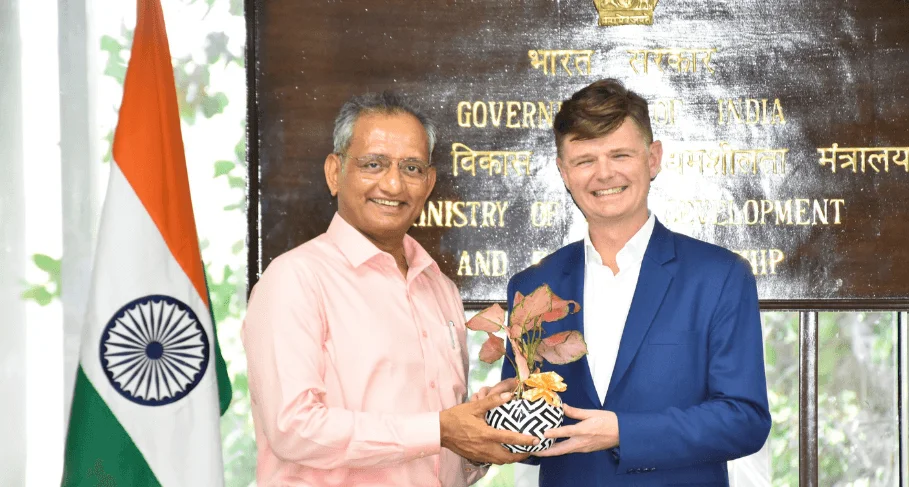The Ministry of Skill Development and Entrepreneurship (MSDE) in collaboration with the Australian Government hosted a comprehensive and a productive roundtable. This significant event was chaired by Mathew Johnston, Minister Counsellor, Education and Research, Australian High Commission, and Shri Atul Kumar Tiwari, Secretary, MSDE. The roundtable was a platform to discuss the learnings from the Australia-India Critical Agriculture Skills Pilot Project and focused on the opportunities that awaited expanding the initiative, scaling it up, and adapting the model to other industries.
Representatives from the National Council for Vocational Education and Training (NCVET), National Skill Development Corporation (NSDC), Indian Council for Agricultural Research (ICAR), Ministry of Education (MoE), and Agriculture Skill Council of India (ASCI) also participated in the discussion.
The initiative, developed in March last year, came into being through an extended consultation with specialists, government entities, research institutions, nonprofit organizations, multilateral organizations, and industry associations. The scoping study involved face-to-face consultations, virtual consultations with 89 experts from 64 organizations and a review of various government reports. The findings were shared with the Ministry of Skill Development and Entrepreneurship (MSDE) and the Australian Government, and subsequently, 107 emerging job roles were mapped to identify the five critical emerging job roles in the agriculture sector for the pilot projects.
The next step was to align qualification standards, which was done by the Agricultural Skill Council of India (ASCI) and Skills Impact (Sector Skill Council equivalent industry body in Australia) in collaboration to be approved by the National Council for Vocational Education and Training (NCVET).
Speaking on the occasion, Shri Atul Kumar Tiwari, Secretary, Ministry of Skill Development and Entrepreneurship (MSDE), highlighted the impact of the collaboration between India and Australia in Vocational Education and Training. He emphasized:
This project is just another testament to the fruitful partnership. The agriculture sector, the backbone of the Indian economy, is of utmost significance for its role in ensuring food security and employment. With sustained efforts such as the Australia-India Critical Agriculture Skills Project, the sector is better equipped to meet the challenges of modernization and sustainability. The aim is to continue the momentum and replicate similar initiatives in many other sectors as well.
The six pilot projects nearing completion have been implemented in 4 states: Andhra Pradesh, Maharashtra, Tamil Nadu, and Telangana. These projects have introduced new and emerging job roles in the sector, including Digital Agriculture Extension Promoter, Carbon Farming Practitioner, Livestock Green Management Promoter, Organic Farm & Business Promoter and Integrated Farming Practitioner. These job roles are not only aligned with Sustainable Development Goals, primarily climate action, reduced inequalities, quality education and industry, innovation & infrastructure but also reflect the changing needs and demographics of the sector.
The course content has been developed by the Indian Council of Agricultural Research (ICAR), Mahindra & Mahindra, Australian College of Agriculture & Horticulture (ACAH), Centre of Sustainable Agriculture (CSA), Ironwood Institute, National Skill Foundation of India (NSFI), Aventia Institute, Aga Khan Rural Support Programme and Carbon Friendly, in collaboration, for respective job roles.
Australia has been an important partner for India, and the two nations are collaborating on training and capacity building, looking for chances in significant industries for deeper skill cooperation, with an emphasis on new-age courses that take into account the changing requirements and demography of both countries. In the wake of NEP 2020, India has launched new initiatives to internationalize further education, such as proposed rules for foreign university campuses in India and regulations for joint, dual, and twinning degrees.


